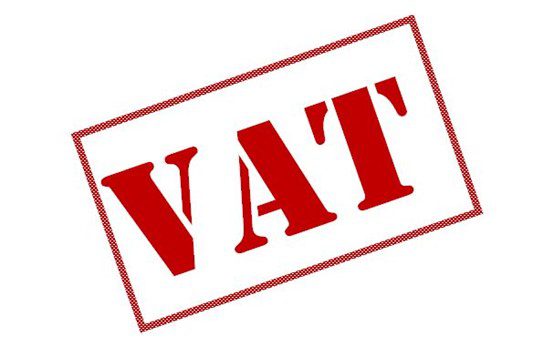Establishing a Joint Venture (JV) in China is challenging due to its partnership nature. Unlike WFOE or RO, JV does not guarantee full foreign control because this kind of structure is formed with a Chinese local partner. Therefore, foreign investors should take this into consideration when planning about doing business in China.
Read our previous post regarding WFOE and Representative Office in China: A Quick Review
On the other hand, setting up a JV might just be an effective strategy to reach a much wider Chinese market and thus, expand the business. If you are interested to know more about what it takes to open a JV, keep reading!
The first step – knowing the Joint Venture structure
The New Foreign Investment Law that took effect on January 1, 2020, has amended the old structure of JV from Equity Joint Ventures (EJV) and Cooperative Joint Ventures (CJV) to a JV company with a three-tier structure. This means that the governing bodies will consist of the board of shareholders, the board of directors, and the managers.
Following the Company Law, the proportionate distribution of profits or dividends among shareholders is now based on a different approach rather than on the actual capital contribution. Furthermore, in terms of shares transfer, a shareholder is deemed to have given consent to selling shares if it does not buy them despite rejecting the transfer. Previously, the selling shareholder would need to obtain full permission from other shareholders.
Meanwhile, a JV structure enables foreign businesses to invest in industries labeled as ‘restricted’ under China’s Negative List. However, Chinese law requires that the Chinese JV parties shall hold majority shares in the JV to be established.
Learn more about China Market Access Negative List for Investors
Qualifications of foreign and Chinese JV partners prior to application

Steps and procedures in establishing a JV
Finding a local business partner
No JV can be started without a Chinese entity, hence, finding a local business partner is important to get going ahead. Foreign investors who are interested in JV must conduct due diligence on the possible JV partner.
Read more: Due Diligence in China: Why & How You Should Conduct It
Seeking professional and local advice on due diligence may be helpful to ensure that your business partner is going to be spot clean. Therefore, do not hesitate to reach out to our financial advisory team to assist you regarding this matter.
Steps for registration
- Register the name of the JV.
- Obtain a certificate of approval from the Ministry of Commerce.
- Apply for a business license and chops from the Public Security Bureau.
- Obtain the organization code license and tax certificate.
- Register with the State Administration of Foreign Exchange.
- Open foreign currency and bank account.
- Make a capital injection from the investor’s overseas bank account and apply for a capital verification report.
- Apply for a permanent business license.
- Register for a financial certificate and statistics license.
Note that foreign companies cannot perform the registration process directly. Instead, they must entrust the application to an approved local agent. The process usually takes 4 to 6 months to be completed and documents must be submitted in Chinese while some may be written in a foreign language.
Documents for JV establishment
For foreign investor
- Certificate of Incorporations or equivalent (for the individual investor, a passport copy certified by the Chinese embassy or consulate)
- Reference letters from the bank proving a good financial standing
- Passport copies of parent company’s director, a legal representative in China, and supervisor of the China company
- Photos and resume of China legal representative
- Brief background statement of the foreign investors
- Registration capital, business scope, and five proposed names of the JV
- Office leasing contract, real estate ownership, and landlord’s ID
- For a trading JV, the parent company’s annual audit report and custom HS code of proposed trading products
For Chinese partner
- IDs of Chinese and foreign investors
- Business license of the local company
- A verification report from a CPA firm
- Last year audit report
- Name list of board directors for the JV
- Article of Association of the local company
Registration capital for JV
There is no minimum capital requirement for establishing a JV. However, the investment contribution of a foreign entity should not be less than 25 percent of the registered capital. This also depends on the type of industry the JV is investing in. Nevertheless, the investment can take the form of cash, technology, or industrial rights.
Taxation requirement
Joint Ventures in China are subject to 25 percent enterprise income tax (EIT) and they are also taxed on their worldwide income. However, the EIT rate can be reduced depending on the size and nature of the JV. For instance, tax incentives for high-tech enterprises are given at a reduced rate of 15 percent.
The business activities of JVs are also subject to different rates of taxes depending on the type of business engagement. For JVs that conduct trading activities, they are subject to value-added tax (VAT) ranging from 0 to 13 percent.
A Joint Venture that pays dividends, interests, and royalties to non-resident taxpayers is also subject to a 10 percent withholding tax (WHT). Nevertheless, they can benefit from a double taxation relief following China’s tax treaties with other countries.
Check out our previous article about Double Taxation Relief for Foreigners in China
The liquidation income after a JV termination is subject to the normal EIT rate of 25 percent. Furthermore, distributed assets recognized as either dividend income or income or loss of the joint venture parties are also subject to EIT or IIT (for individual investors). The income obtained by a non-resident taxpayer after the liquidation is also subject to withholding tax.
Have a look at our previous article on Dividend Distribution to Foreign Shareholders
(This article was published on July 16, 2020, and was updated on February 22, 2021.)
Contact us
If you want further assistance regarding the procedures and tax concerns of establishing a Joint Venture in China, you may contact us or call our offices in different China locations. Also, visit our tax and accountancy page to see more details of our specialist services.
Moreover, we have been at the forefront of promoting full automation of business operations, especially for startups and SMEs. We have introduced our Cloud-based advanced solution, Kwikdroid, to make business transactions easier with us, no matter what type or size of the company. Visit our Kwikdroid page to learn more about the services we offer.
You may be interested to read about how to manage your company remotely using the advantages of Kwikdroid.If you want to know more about doing business in China, contact our team for consultation and assistance. Follow us on social media to get the latest news!
Our experienced team has the necessary expertise and the know-how to support you with your business – have a look at the services we offer.







